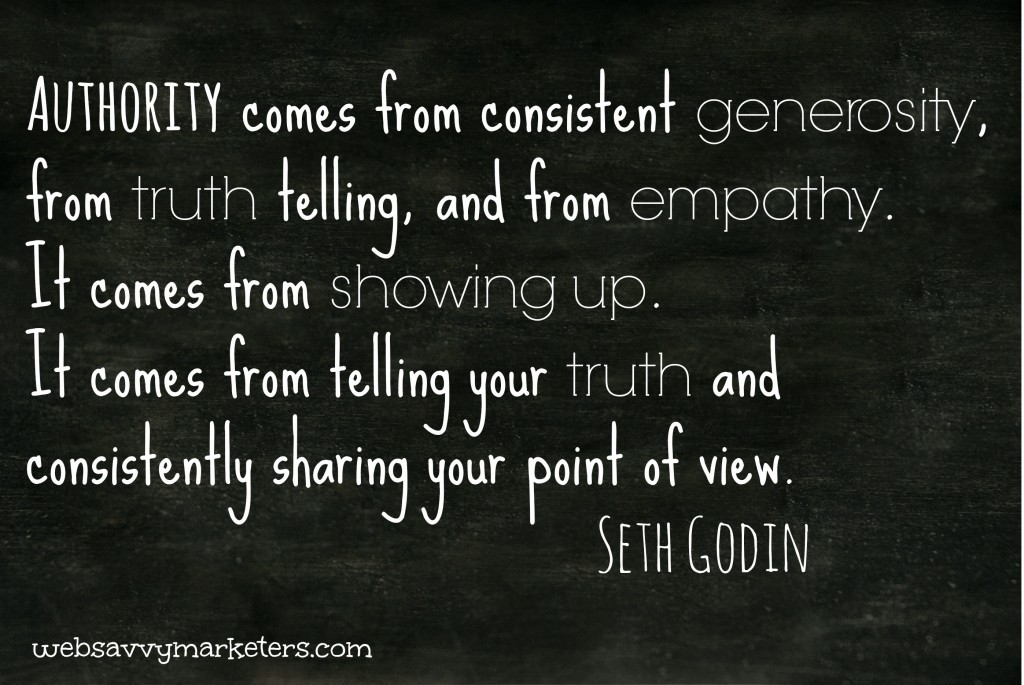 Seth Godin recently wrote a guest post on Copyblogger about striving for authority. The comments were nearly as entertaining and informative as the post.
Seth Godin recently wrote a guest post on Copyblogger about striving for authority. The comments were nearly as entertaining and informative as the post.
You would think no one would dare to question Godin, whose authority and credibility have been time-tested and proven. But since it’s the nature of humans to squabble and whine, even Godin, whose high moral ground is the beacon of light for marketers worldwide, will suffer from censure.
As one commenter complained, isn’t it obvious by now that in order to gain authority you must work for it? Why must we be reminded of this again and again?
Because we need it. Duh.
My mom used to tell me, “Don’t do as I do, do as I say.” Coming from a parent who has earned her authority, she wasn’t so worried about her credibility. Of course, that changed as I grew older and began to question that authority.
To be an authority online, what you do and what you say need to match up. Delivering your promises is more important now than ever with all the social media platforms that allow for public venting and finger-pointing.
When our house was broken into, the policeman who handled the case was unquestionably an authority. Like Godin pointed out, licensed authorities are obvious. What’s not so obvious is the potential to earn authority through acts of credibility.
This policeman earned his credibility when he showed that he was doing the hard work of searching for the perpetrator and supporting us. He also earned our trust. He might have been a figure of authority when he walked in, but he was a true model of law enforcement’s compassion and integrity when he left.
It didn’t matter that he never caught the burglar. What mattered is that we knew he cared due to his investment of time and effort with us as a family.
In describing his contes moreaux, or “moral tales” film series, director Eric Rohmer said, “What matters most is what they think about their behavior, rather than their behavior itself.”
What matters most is not what you do, but what you think, because that’s what’s going to become clear over time. Your behavior will come back to bite you if it’s not authentic. As Sonia Simone, Copyblogger co-founder, wrote in the comments, “Authority without credibility is called fraud.”
Derek Halpern makes a case for gaining instant credibility on his website, Social Triggers. Sounds gimmicky, I know. However, he gives three valid points that expand on what are well-known tactics: “Be honest” – by arguing against your own self-interests, “know your ish” – give accurate and precise information, and “don’t scam” – back your claims with evidence.
Halpern’s blunt personality and no-holds-barred approach make for an authentic online presence. If anything he does comes back to bite him, it’s surely not due to a lack of truth telling. (His How to Deal With Haters is my favorite. I know you’ll love it too.)
To be an authority, emulate the prototype. As Godin tells us, “Authority comes from consistent generosity, from truth telling, and from empathy. It comes from showing up. It comes from telling your truth and consistently sharing your point of view.”
Copyblogger’s founder Brian Clark summed up our inherent need for a beacon of light in Godin in a reply to a commenter, “It’s good to air these things out like the big dysfunctional family we are.”
Well said.